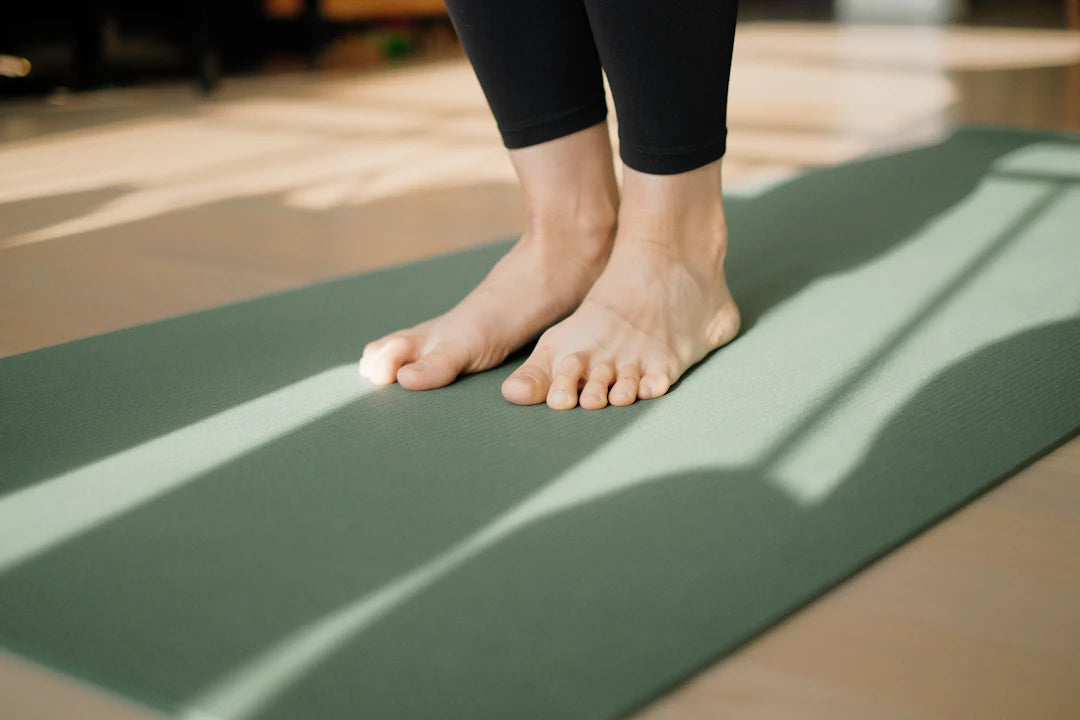
Create a Safe Workout Space at Home for Seniors
Share
Overview
Creating a safe workout space at home is essential for seniors to maintain health and independence. Key steps include choosing the right location, removing hazards, ensuring proper lighting, using appropriate equipment, and setting up a comfortable environment. Incorporate easy mobility routines like chair exercises, gentle stretching, and low-impact cardio to enhance well-being. Overcome challenges by staying motivated, setting realistic goals, and promoting healthy lifestyle habits. Embrace the journey to an active lifestyle with confidence and support.
Frequently Asked Questions
1. Why is a safe workout space important for seniors?
2. What should I consider when choosing a location for my home workout space?
3. How can I remove hazards from my workout area?
4. What types of equipment are recommended for seniors' easy mobility routines?
5. What strategies can help seniors stay motivated to exercise regularly?
Creating a safe workout space at home is essential for seniors looking to stay active and maintain their health. With the right environment, older adults can embrace easy mobility routines that enhance their well-being and promote independence. Let’s explore how to create a secure and supportive workout area, keeping in mind common challenges such as joint pain, balance issues, and the need for motivation.
Understanding the Importance of a Safe Workout Space
Regular exercise is crucial for seniors. It helps improve strength, flexibility, balance, and overall health, combatting common ailments like joint pain and reduced mobility. However, without a safe space to work out, individuals may hesitate or feel anxious about exercising. A well-organized and safe workout area can have the following benefits:
- Encourages consistency in physical activity
- Reduces the risk of injuries
- Enhances confidence in performing exercises
- Promotes social interaction if workouts are done with family or friends
Steps to Create Your Safe Workout Space
1. Choose the Right Location
The first step in establishing your home workout space is to select a suitable location. Look for a room that offers:
- Ample daylight to enhance mood and motivation
- A flat and open floor space for movement
- Good ventilation to keep the area comfortable
A living room, bedroom, or den can serve as a great workout area, just ensure that the space is free from clutter and obstacles such as furniture or decorative items that may pose a hazard.
2. Remove Hazards
Safety is paramount, especially for seniors who may experience balance issues or have limited mobility. To create a safe environment:
- Clear all unnecessary items from the floor.
- Secure loose rugs or remove them entirely to avoid tripping hazards.
- Adjust furniture placement to create a clear, open space.
Additionally, ensure that any workout equipment is in good condition and properly stored when not in use.
3. Ensure Proper Lighting
Good lighting is essential for safety and visibility. Consider the following tips:
- Utilize natural light where possible by keeping windows clear.
- Use soft but bright lighting to avoid glare.
- Add floor lamps or exercise lights if the area feels too dark.
4. Use Appropriate Equipment
While you don’t need a gym full of equipment, incorporating a few essential items can enhance your easy mobility routines. Consider lightweight dumbbells, exercise bands, or stability balls. Here are some gentle exercise tools to think about:
- Yoga mats for floor routines and balance exercises
- Stability balls to improve core strength
- Resistance bands for an easy mobility routine that doesn't strain the joints
Make sure any equipment used is easy to handle and store, ensuring that it promotes, rather than detracts from, safety.
5. Set Up a Comfortable Environment
Comfort can significantly impact motivation. Make adjustments to create a pleasing atmosphere:
- Add a fan or heater to regulate temperature.
- Use comfortable mats for floor exercises.
- Consider using calming colors and decor to create a tranquil environment.
Designing Your Easy Mobility Routines
Once you have your safe workout space set up, you can begin to explore easy mobility routines that cater to your specific needs and comfort levels. Here are some recommendations for gentle exercises:
Chair Exercises
Chair exercises can be an excellent option for seniors, particularly for those dealing with joint pain or balance challenges. Here’s a simple routine:
- Seated Marching: Sit up straight and march your legs up and down while engaging your core. This can help improve circulation and leg strength.
- Seated Leg Extensions: While still seated, extend one leg at a time. Hold for a few seconds before switching legs; this helps build quadriceps strength.
- Arm Curls: Use light weights or simply your fists to perform bicep curls; this strengthens arm muscles while remaining seated.
Gentle Stretching
Stretching is another essential aspect of any fitness routine, particularly for maintaining flexibility and reducing stiffness. Try to incorporate the following stretches into your easy mobility routine:
- Neck Stretches: Slowly tilt your head to one side and hold for a few seconds before switching sides.
- Shoulder Rolls: Gently roll your shoulders forward and backward to relieve tension.
- Calf Raises: Stand and hold onto a chair for balance while slowly raising and lowering your heels. This improves balance and leg strength.
Low-Impact Cardio
Incorporating low-impact cardio into your routine can promote heart health without putting excess strain on your body. Here are simple options you can consider:
- Walking: Walking indoors or around your home is a great way to get moving while also improving cardiovascular health. Set small goals, like walking for 10 minutes at a time.
- Tai Chi: This ancient Chinese practice offers gentle movements and focuses on balance, stability, and relaxation.
- Water Aerobics: If available, this can provide a wonderful way to engage muscles with less impact on the joints.
Overcoming Common Challenges
Staying active can sometimes feel daunting for seniors facing challenges like joint pain, fatigue, or motivation struggles. Here are some strategies to help overcome these obstacles:
- Listen to Your Body: It's essential to pay attention to your body's signals. If you feel pain, stop and adjust the movements accordingly.
- Incorporate Social Elements: Invite a friend or family member to join you. Social support can create motivation and make exercises more enjoyable.
- Set Realistic Goals: Start small and gradually increase your activity level as your confidence and strength grow.
- Stay Educated: Consider engaging with online communities, classes, or workshops focused on senior fitness.
Maintaining Motivation
Staying motivated can be one of the biggest hurdles, but having a structured environment and involving others can significantly help. Here are some ideas:
- Create a Routine: Schedule your workout times like any other appointment. Consistency can help reinforce positive habits.
- Track Progress: Keeping a log of your workouts can provide visual motivation, showing achievements over time.
- Celebrate Success: Take time to recognize your progress, no matter how small. Kind words to yourself can boost self-esteem and encourage you to keep going.
Promoting Healthy Lifestyle Habits
In addition to staying active, adopting healthy lifestyle habits can support your physical fitness journey. Here are some valuable suggestions:
- Healthy Eating: Ensure your diet includes plenty of fruits, vegetables, whole grains, and lean proteins. Staying hydrated is essential, especially during physical activity.
- Prioritize Sleep: Rest is vital for recovery and overall health. Aim for 7-9 hours of sleep per night.
- Stay Connected: Engage with family and friends regularly, as maintaining social connections can significantly impact mental health.
Empower Your Fitness Journey
Creating a safe workout space at home allows seniors to pursue their fitness aspirations without fear or inconvenience. Easy mobility routines can drastically enhance physical health, promote independence, and improve overall quality of life. Remember, the journey towards a more active lifestyle might seem intimidating, but with the right support, environment, and mindset, it can also be filled with joy and vitality. Embrace this opportunity to strengthen not just your body, but also your spirit, and enjoy every step of the way!
